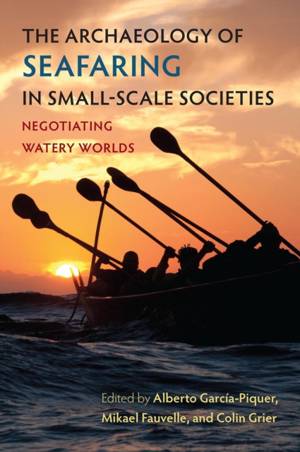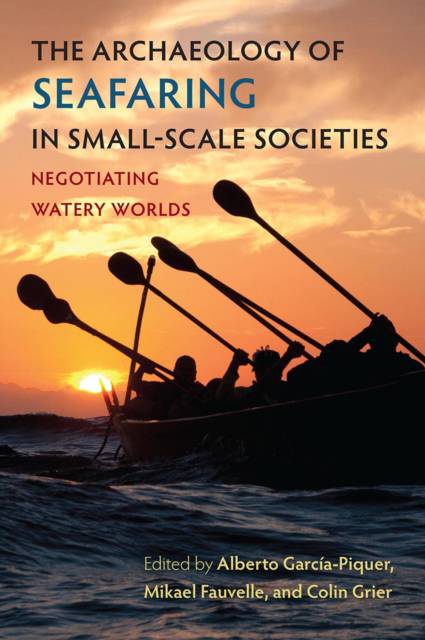
- Retrait gratuit dans votre magasin Club
- 7.000.000 titres dans notre catalogue
- Payer en toute sécurité
- Toujours un magasin près de chez vous
- Retrait gratuit dans votre magasin Club
- 7.000.0000 titres dans notre catalogue
- Payer en toute sécurité
- Toujours un magasin près de chez vous
The Archaeology of Seafaring in Small-Scale Societies
Negotiating Watery Worlds
97,45 €
+ 194 points
Description
Exploring how ancient peoples developed seafaring
technology and used watercraft to support and transform their societies The development of
seafaring technology throughout history expanded geographical and social
horizons--powering human mobility and interaction, structuring social contexts,
shaping world views, and even affecting political centralization. This volume examines
how watercraft have served as groundbreaking innovations throughout human
history, focusing on small-scale societies in saltwater environments.
Using
archaeological, historical, and ethnographic evidence, contributors examine
settlement patterns in Western Patagonia, whale hunting by Megalithic societies
in Brittany, maritime mobility in Baja California, Coast Salish trip lengths,
and Inuit connections to boats and the sea in the Eastern Arctic. Themes
explored include the technological capacities of watercraft and the humans who
propelled them, the role of watercraft in production and consumption of
resources, the impacts of widespread travel on social networks, and the
phenomenological experience of seafaring. The Archaeology of Seafaring in
Small-Scale Societies illuminates the complex interplays that sustained
past watery worlds and highlights the necessity of studying the subject with a
holistic and globally comparative approach. A volume in the series Society and Ecology in Island and Coastal
Archaeology, edited by Victor D. Thompson and Scott M. Fitzpatrick
technology and used watercraft to support and transform their societies The development of
seafaring technology throughout history expanded geographical and social
horizons--powering human mobility and interaction, structuring social contexts,
shaping world views, and even affecting political centralization. This volume examines
how watercraft have served as groundbreaking innovations throughout human
history, focusing on small-scale societies in saltwater environments.
Using
archaeological, historical, and ethnographic evidence, contributors examine
settlement patterns in Western Patagonia, whale hunting by Megalithic societies
in Brittany, maritime mobility in Baja California, Coast Salish trip lengths,
and Inuit connections to boats and the sea in the Eastern Arctic. Themes
explored include the technological capacities of watercraft and the humans who
propelled them, the role of watercraft in production and consumption of
resources, the impacts of widespread travel on social networks, and the
phenomenological experience of seafaring. The Archaeology of Seafaring in
Small-Scale Societies illuminates the complex interplays that sustained
past watery worlds and highlights the necessity of studying the subject with a
holistic and globally comparative approach. A volume in the series Society and Ecology in Island and Coastal
Archaeology, edited by Victor D. Thompson and Scott M. Fitzpatrick
Spécifications
Parties prenantes
- Editeur:
Contenu
- Nombre de pages :
- 320
- Langue:
- Anglais
- Collection :
Caractéristiques
- EAN:
- 9780813079493
- Date de parution :
- 16-12-25
- Format:
- Livre relié
- Format numérique:
- Genaaid
- Dimensions :
- 156 mm x 235 mm

Les avis
Nous publions uniquement les avis qui respectent les conditions requises. Consultez nos conditions pour les avis.





